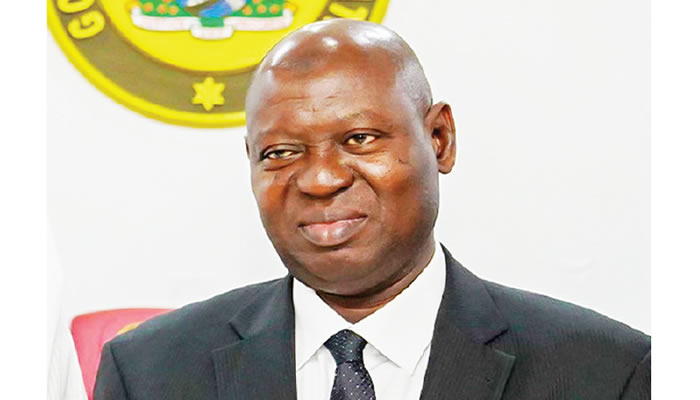The Chief Judge of Lagos State, Justice Kazeem Alogba, offered a blunt recommendation to judges this week – retire if you can no longer bear the workload. He cautioned against judges dying on the job due to refusing to step down when energy runs low.
The News Agency of Nigeria reports that Alogba gave the advice at the public presentation of a book written by the Lagos State Attorney-General and Commissioner for Justice, Mr Lawal Pedro (SAN) in Ikeja on Wednesday.
The book titled ‘The Supreme Court of Nigeria; History, Establishment, Jurists and Speeches’ was co-authored by Mr Abdulrasheed Ibrahim.
Alogba said judges should retire from the bench if they were no longer in good health.
According to him, regardless of the retirement age, judges should be able to eat the fruits of their labour.
He said: “When it comes to a time until death do you and service part, I do not agree.
“You must assess yourself when you are tired, do not wait, please go home and rest.
“There is nothing you want to do again which you could not have done on the bench before you got to the stage of being tired if you are really interested in the work
“You do not need to die and have a valedictory for you, so retire if you are no longer in good health.”
The Chief Judge’s comments come as concerns mount over elderly judges struggling with lengthy dockets and expectations to still operate at full capacity. While retirement ages technically exist, many judges stay on the job while their health fails them.
According to him, good health is by God’s grace and judges should retire when they no longer have it.
He said though the retirement benefit might be peanut, he did not think any judge who had been in practice for quite some time before coming to the bench, would be a poor man.
“Ostentation apart, but to live a simple, quiet, and reasonably comfortable life, any judge who has spent 10 to 15 years on the bench, should be able to do that.
“So why do you want to kill yourself on the job and then people will just collect your benefit after you have died?
Justice Alogba reminded the judges that the retirement age limit for High Court judges in Lagos state has been moved to 70 based on new National Judicial Rules. But he essentially argued that the limit is not mandatory if personal factors dictate earlier withdrawal.
“Once you turn 70 or have put in 35 years of service, you can retire. But even before you attain that age, once you know you cannot cope with the volume of job and stress associated with it, the most reasonable thing is to retire,” said the Lagos CJ.
He pointed to the heavy caseloads judges in the state handle and the need for sound physical and mental shape to sit on marathon trials. “Any judge that is tired can call me, and we will process the retirement so the judge can rest,” Alogba added.
The Chief Judge’s candid comments have ignited discussions around burns out, capacity and turnover in the state and federal judiciary. Critics argue that political pressure also pushes some judges to remain on the bench into later years.
“The law has spoken; speak for yourself and assess if you are mentally and physically capable of going on with the work, but if your answer is no, go back home,” the chief judge said.









